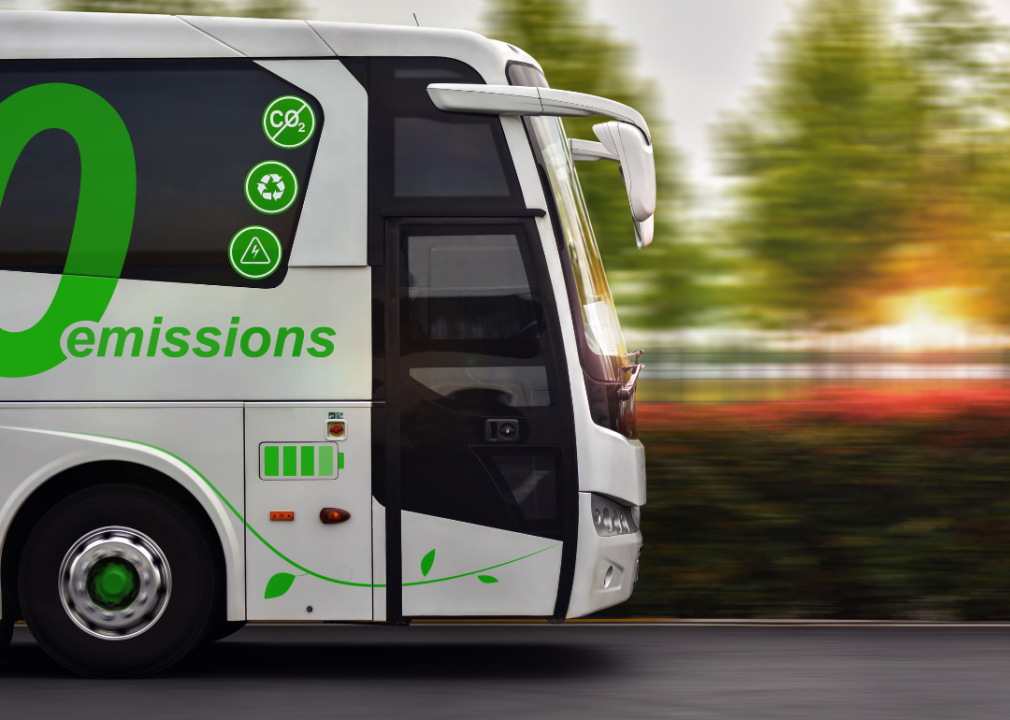How travel management companies are attempting to meet UN sustainable development goals
Published 5:30 pm Tuesday, October 11, 2022
Sorapop Udomsri // Shutterstock
How travel management companies are attempting to meet UN sustainable development goals
In just eight years, the United Nations will be able to assess how well the world has done in meeting the goals laid out in its 2030 Agenda for Sustainable Development. This plan, approved by all U.N. member states in 2015, consists of 17 Sustainable Development Goals (SDGs) for governments and businesses across industries that aim to improve people’s lives and preserve the environment. The goals were established to build upon the U.N.’s Millennium Development Goals and to advance sustainable growth and development in the world’s economic, social, and environmental aspects.
Improving environmental sustainability is a concern for many industries, particularly the travel industry. Air travel accounts for up to 3.5% of all warming and in October 2021, airline companies across the European Union and U.S. pledged to transition to sustainable aviation fuel with the goal of net zero carbon emissions by 2050. Shifting to train travel is also gaining more interest—a 310-mile trip by rail can emit three times less carbon dioxide than flying the same distance, according to the International Council on Clean Transportation. Travel management companies, which are travel agencies that work with companies to manage business travel for company employees, know their clients’ travel has an environmental impact, and they are working to create more sustainable business models within the industry.
The COVID-19 pandemic completely changed the way businesses think about travel. Virtual meetings replaced many types of business trips during the pandemic and are considered, at least to some extent, the new normal. With more remote workers in different locations, many business travel plans now include trips to meet coworkers—not just clients. Meeting in-person has become more purpose-driven for specific high-value experiences or outcomes.
Recovery from the impacts of COVID-19 likely remains a top priority for the business travel industry. The pandemic highlighted the urgency of the next devastating global crisis that, for many, means facing the reality of climate change. The U.N.’s sustainability goals were designed to always be top-of-mind, COVID-19 notwithstanding, and they continue to be benchmarks for many industries.
To continue exploring the ways that the travel industry is responding to climate change, TravelPerk explored how travel management companies are working to meet the Sustainable Development Goals set by the U.N., referencing a 2021 report from the Business Travel Association. The report interviewed industry leaders about resolving environmental, social, and governance challenges. Each item on the forthcoming list represents a top-priority SDG identified by industry leaders.
![]()

Foxy burrow // Shutterstock
Quality education
– U.N. Sustainable Development Goal 4
Travel management companies working toward the U.N.’s education goals have developed opportunities at different levels of the industry. Some TMCs partner with schools to offer in-school visits and internship opportunities. Mentoring is recommended throughout the industry to help develop and retain talent.
Continuing education is also vital to keeping employees up-to-date on new technology, products, and services. Many industry associations offer educational opportunities—for example, the Global Business Travel Association offers a certification program available to business travel professionals with at least three years of experience and aims to foster professional growth and development. The U.N.’s World Tourism Organization teamed up with Spain’s Instituto de Empresa to launch an online tourism academy. Some TMCs also have partnerships with companies to provide in-house learning options and have even leveraged social media companies, such as LinkedIn, for such purposes.

fizkes // Shutterstock
Gender equality / reduced inequalities
– U.N. Sustainable Development Goals 5 & 10
Equity barriers both within travel management companies themselves and within the client firms they serve present one of the most challenging issues to address. While there is no “one size fits all” model for addressing equity and equality, TMCs are actively seeking out ways to improve their corporate cultures. A 2022 Business Travel News survey found that 84% of respondents agree or strongly agree that their companies are actively working to create a culture of diversity, equity, and inclusion, and 83% believe that such measures are important to their organizations. Some of the ways that TMCs are building inclusive culture include creating pay parity goals, auditing workplace processes, and prioritizing diversity among senior roles, according to the 2021 Business Travel Report.
TMCs also have to understand barriers their clients may face while traveling due to race, gender, sexual orientation, or physical abilities. Another Business Travel News survey, which looked at how corporate culture affects travel, found that 55% of respondents believe that their company is working toward better understanding their clients’ travel experiences and needs.

Zoran Zeremski // Shutterstock
Decent work and economic growth
– U.N. Sustainable Development Goal 8
The pandemic had a devastating effect on TMCs as travel restrictions caused much of their business to dry up. This led to a lot of consolidation in the industry and a loss of staffing—which, in turn, resulted in more work distributed to remaining employees, many of whom were already burdened by their own workload and further disadvantaged by inequitable compensation.
Business Travel News found that job titles affected salary levels—workers with job titles that included words like “analyst,” “coordinator,” and “specialist” often had lower salaries than managerial-sounding titles, even if those individuals had more experience.
While staffing levels and wages continue to fluctuate, economic growth presents an additional challenge. The World Economic Forum found that the global travel and tourism industry lost $4.5 billion in gross domestic product in 2020 alone (along with some 62 million jobs); however, the WEF also provides a framework for sustainable economic growth, which includes benchmarks for “the set of factors and policies that enable the sustainable and resilient development of the Travel and Tourism sector.”

alexfan32 // Shutterstock
Sustainable cities and communities
– U.N. Sustainable Development Goal 11
Business travel often involves special meetings and events, including large client meetings, corporate trainings, and conferences. Cities and communities hosting these gatherings often benefit from an influx of business across food, hotels, transportation, and other areas—but sometimes at an environmental cost if sustainability is not kept in mind. TMCs have put efforts in addressing community sustainability goals by educating customers and partners on supply chain management, reducing plastic and resource waste at venues, and seeking to host carbon-neutral events, according to the 2021 Business Travel Association report. Selecting local partners and procurement vendors that prioritize sustainability also helps TMCs support responsible consumption.
As companies return to travel, they are increasingly working to incorporate sustainability into business events. That said, the Global Business Travel Association found that 62% of companies do not have a carbon emissions reduction target for company-hosted meetings. One in five European companies has an emissions target for events, compared to just three in 50 North American companies, so this area is an opportunity for continued growth and attention.

engel.ac // Shutterstock
Responsible consumption and production / climate action
– U.N. Sustainable Development Goals 12 & 13
Many travel methods inherently use fossil fuels and contribute to global warming. However, TMCs have options to track, measure, and offset carbon footprints for clients that are increasingly concerned about sustainability. Having better information allows for informed decisions when choosing booking options among modes of transport and different travel providers. This allows companies to better understand how their travel impacts the environment and to make plans to offset those impacts.
Some TMCs are joining the U.N.’s Science Based Targets Initiative, which aims to increase corporate participation in climate initiatives in order to align with the Paris Agreement. The U.S. government is also working to produce sustainable aviation fuels, which have a smaller carbon footprint than traditional jet fuel.
This story originally appeared on TravelPerk and was produced and
distributed in partnership with Stacker Studio.






